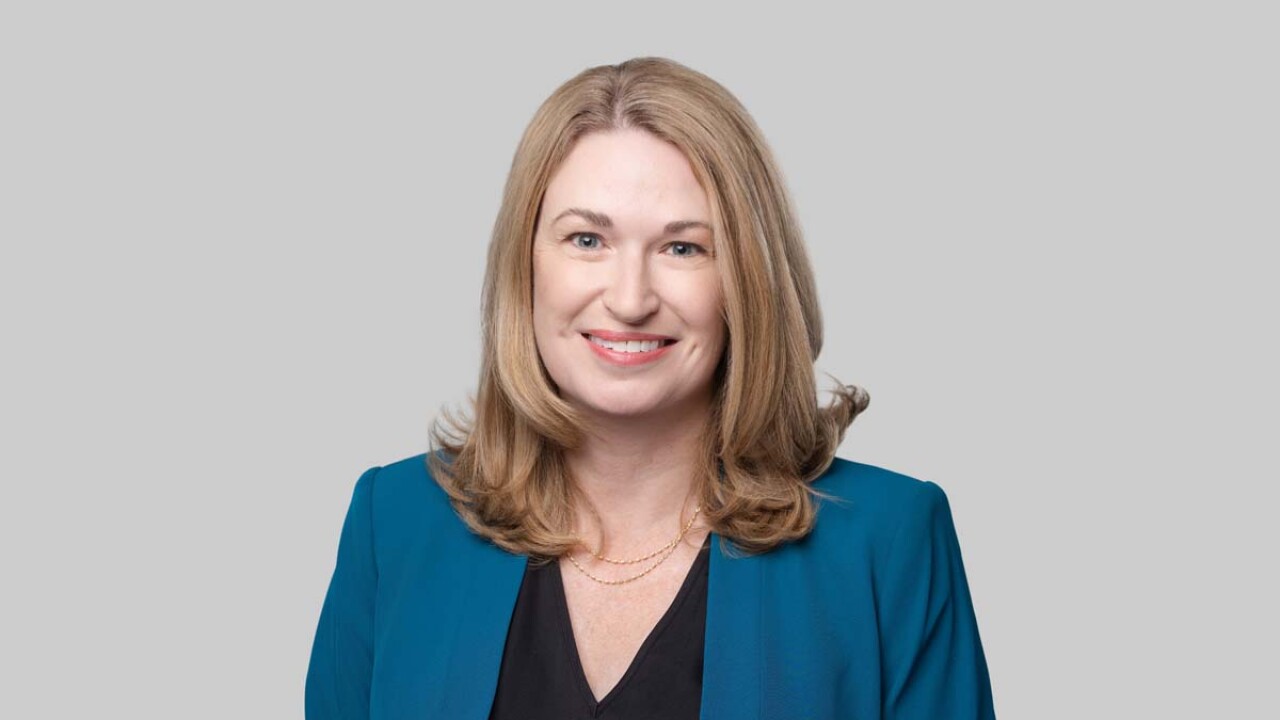Financial planner John Boyd thinks in 10 years' time most everyday investors will have at least part of their portfolios in real estate trusts, private equity or other sorts of alternative assets.
What's likely holding them back now is a lack of widespread understanding among advisors of these options — as well perhaps their fear of legal consequences over perceived breaches of their fiduciary duties. It's anxieties of this sort that a new bill in Congress is meant to allay.
If adopted, the Retirement Savings Modernization Act would make it clear that 401(k) plan sponsors like Vanguard and Fidelity cannot be held liable merely for recommending or choosing investments such as commodities, public and private debt, digital assets like cryptocurrencies, hedge funds, infrastructure, private equity, real estate and venture capital funds.
Investments of this sort are already legal under the Employee Retirement Income Security Act, adopted in 1974 to govern private pension funds. And should the Retirement Savings Modernization Act pass, any plan sponsor recommending them would still be bound by its fiduciary duties and face consequences for advice not proffered in clients' best interests. But there would be a shade more legal protection for sponsors that look past more traditional investments like stocks and bonds.
Originally introduced in 1974 mainly as a supplement to employer-provided pensions, 401(k)s have gone on to become the main type of retirement fund relied on by people working in the private sector. Of the employer respondents to a 2017 survey conducted by the insurance firm Willis Towers Watson, 81% said they plan to offer only a defined-contribution plan like a 401(k) to new hires. The Investment Company Institute has reported that $7.3 trillion was held in 401(k)s as of June 30, 2021, accounting for nearly a fifth of all U.S. retirement savings.
Some 401(k) sponsors have given investors the option to choose alternative investments. Fidelity announced in April the start of its d
He's not necessarily pushing for cryptocurrency. But Boyd said virtually all of his clients have some stake in alternative investments, primarily non-traded real estate investment trusts.
Boyd said alternative assets have provided his clients with a bulwark this year, when both stock and bond values have been depressed. A time will come soon, he said, when most investors will want a similar hedge in their 401(k)s.
"Retail investors are getting wiser," Boyd said. "Hopefully soon we'll see a day when alternative assets aren't associated with the bogeyman."
Others are skeptical. Katherine Fox, the founder of Sunnybranch Wealth in Portland, Oregon, questioned whether most advisors have a deep enough knowledge of alternative assets to be able to make prudent recommendations about them, even if they've already been selected as part of a 401(k) plan. She would be extremely wary herself of going anywhere near something like cryptocurrencies.
"You still have the fiduciary standard, and these investments are complicated and complex," Fox said. "They can come with a much higher degree of risk than stocks and bonds."
The Retirement Savings Modernization Act was introduced on Sept. 29 by three Republican lawmakers: Sens. Pat Toomey, of Pennsylvania, and Tim Scott, of South Carolina, and Rep. Peter Meijer, of Michigan. The main impetus of the proposal is a
"Our legislation will provide the millions of American savers invested in defined contribution plans with the option to enhance their retirement savings through access to the same wide range of alternative assets currently available to savers with defined-benefit pension plans," Toomey said in a statement. "This reform will open the door to higher returns and a more secure retirement for millions of Americans."
So if the advantages to diversification are so great, why aren't 401(k) sponsors offering more options?
According to the Georgetown report: "Plan sponsors may be hesitant to implement changes to their programs given the higher perceived fiduciary risks and concerns about possible litigation. The legal obligations of plan fiduciaries, such as the prudent selection of investment options or a reasonable level of fees, have been the subject of a significant number of lawsuits in recent years."
The Retirement Savings Modernization Act's supporters include the Small Business Investors Alliance, Voya Financial and the American Securities Association. Also among them are the Institute for Portfolio Alternatives and the Defined Contribution Alternatives Association, lobbying groups that generally push for greater investment options.
Kevin Walsh, a member of DCALTA and a lawyer with expertise in fiduciary compliance, said one large goal of the bill is to give investors in defined-contribution plans like 401(k)s the same options that have long been enjoyed by beneficiaries of defined-benefit plans like traditional pensions.
"I think we've seen arguments that fiduciaries shouldn't do new or complex things," Walsh said. "But the fiduciary rule doesn't say certain types of investments should be excluded just because they're difficult to understand."
According to National Association of State Retirement Administrators data cited in the Georgetown report, the largest corporate pensions among companies worth more than $2.1 billion had 4.2% of their investments in hedge funds, 3.4% in private equity, 3% in real estate and 3.6% in "other" asset classes in 2016. Data from the same source showed that public pensions had even more in alternative investments, about 25% of the total.
Walsh said he thinks too much has been made of the greenlight the bill would ostensibly give to putting money into cryptocurrencies and other digital assets. He said most pension funds and other defined-benefit plans instead tend to concentrate their alternative investments in real estate, private credit and private equity.
"I think it's pretty wild how much of the attention has been focused on cryptocurrency," Walsh said.
The Retirement Savings Modernization Act has yet to attract a Democratic sponsor. That and the relatively little time left in Congress's legislative calendar have Anya Coverman, president and CEO of the Institute for Portfolio Alternatives, not especially optimistic the legislation will advance this year. But that doesn't mean the effort will be abandoned.
"We certainly believe this is about helping people with retirement," she said. "So we hope this will eventually become a bipartisan effort."
Should the Retirement Savings Modernization Act or something like it become law, it's likely to be greeted in the industry with everything from wild cheers to guarded wariness. For every financial advisor like Boyd who only wishes 401(k) plans would give him more diversified options to recommend, there will be plenty of others who will dread the pitfalls these choices bring.
John Bovard, founder of Incline Wealth Advisors in Cincinnati, said he already advises some of his clients to invest in real estate through the Blackstone Real Estate Investment Trust. But rather than through a 401(k), this is usually done through a taxable account that ensures any gains will be taxed at the lower capital gains rate than the higher rate for income.
He said the Blackstone trust, commonly known as BREIT, has provided a hedge against market turmoil. It's up about 9.1% this year while the stock market is down more than 20%.
Still, Bovard tends to recommend it only to specific investors, usually those with a net worth of $1 million or more. He said he wonders if the majority of Americans – most of whom rely heavily on 401(k)s for retirement – need to be exposed to such complicated products.
Similarly Noah Damsky, a founder of Marina Wealth Advisors in Los Angeles, said he will often advise clients who want to invest in alternative assets to use taxable accounts for that purpose. He said he's generally a fan of giving people more choices.
"So I do think something like this could be beneficial to everyday people if it's used correctly,' he said."But there's always that potential for abuse and that it'll end up biting people."
Backers of the Retirement Savings Modernization Act are at pains to explain that anyone making recommendations for alternative investments will be bound by the same fiduciary duties as before. Boyd, for his part, thinks both advisors and the investing public will come around to embracing alternative investments.
"People need to get over the idea," he said, "that when they hear the word 'alternative,' that equals 'risk.'"








